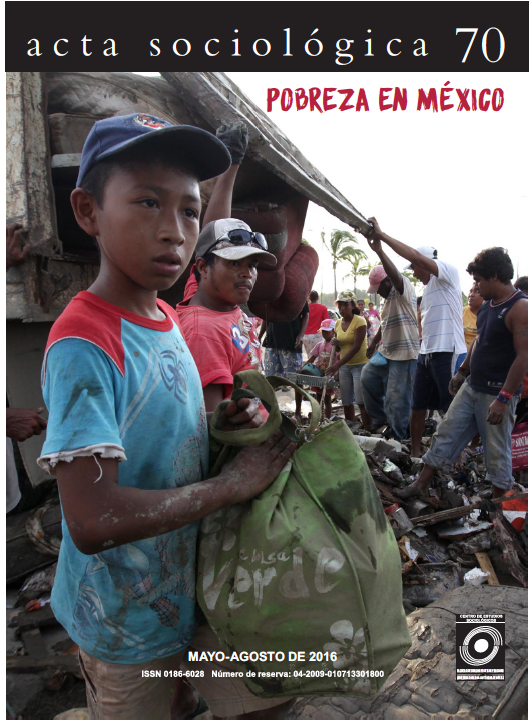The eternal dilemma: Poverty or inequality in the explanation of homicides. Unexpected findings and a proposal to overcome the dilemma
Main Article Content
Abstract
After discussing the concepts of hunger, undernutrition, food insecurity and food poverty, we propose a methodology to measure food poverty which integrates two innovations which were developed separately: 1) construction and cost estimate of the Normative Food Basket (NFB) for the concrete composition of each household in Mexico City, carried out by Evalúa DF; 2) The comparison between the cost of the NFB and households’ food expenditure, instead of comparing it with income, as usually done. This integration allows a rigorous diagnosis of the food condition in Mexico City. Lastly, results of applying both innovations are contrasted with the results derived from comparing the costs of INEGI-CEPAL’s NFB and CONEVAL’s Minimum Welfare Line with households’ income.
